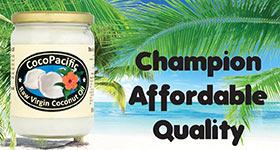|
|
|
Commentary by Andrew W. Saul Freedom of the press is guaranteed only to those who own one. (Abbott Joseph Liebling) An internet search for "orthomolecular medicine" can bring up some remarkably official-looking misinformation. A prime example is the American Cancer Society's webpage on orthomolecular medicine, which is incomplete, negative and fallacious. Read it and see for yourself. A tad biased, perhaps? Carefully search that same ACS orthomolecular medicine page for the word "intravenous." The word is not even there, even though the US National Institutes of Health sponsored research which clearly showed that intravenous vitamin C selectively kills malignant cells. The study concluded that "Vitamin C at high concentrations is toxic to cancer cells in vitro." (1) In vitro refers to a laboratory culture. For a real-world test, the same team then gave IV vitamin C to cancer patients, and it worked very well. (2) You would think that the American Cancer Society would find this at least a little intriguing, and maybe even mention it. But no: no mention at all. On the other hand, the American Cancer Society is blatantly bullish on chemotherapy. Odd, really, since a peer-reviewed study showed that conventional chemotherapy contributes only 2.1% to five year cancer survival in the USA. (3) The ACS webpage has not been updated since 2008, yet all three of these studies were published well before then. Perhaps readers may be able to help ACS modernize and improve the accuracy of their presentation. You can send a message to the American Cancer Society at Some websites are not satisfied with telling half the story. They marginalize nutritional medicine physicians as promoters of an "unproven" therapy, or even attempt to characterize them as quacks. Wikipedia, popular though notoriously unreliable, is a good example. However, word is getting out. If you go to the very bottom of the page, below the reference section, you can view the page's ratings. On a 5-point scale, readers have rated Wikipedia's orthomolecular page in the neighborhood of 1.6 for Trustworthiness, Objectivity, and Completeness. Sources claiming that orthomolecular medicine is without scientific basis and in the realm of "faddism" should be embarrassed by such a display of their ignorance. • Since 1987, there has been a chair in orthomolecular medicine at Ben Gurion University in Tel Aviv. Lendon Smith, M.D. (pediatrics) Click here and here. Wilfrid Shute, M.D.; Evan Shute, M.D. (cardiovascular disease) Click here and here and here. Frederick Robert Klenner, M.D. (viral illnesses; multiple sclerosis) Robert F. Cathcart III, M.D. (viral illnesses) William Kaufman, M.D., Ph.D. (arthritis) Click here and here. Roger J. Williams, Ph.D. (alcoholism) Click here and here. You can learn more about these and many other distinguished advocates of nutritional medicine, such as Drs. Harold Foster, Josef Issels, David Horrobin, Alan Cott, Archie Kalokerinos, Henry Turkel, Ewan Cameron, and Cornelius Moerman, by going to www.orthomolecular.org Why is OMNS highlighting all these researchers? Because others try to direct your attention away from them. We think you should be aware of their work and look into it. And do be sure to visit the American Cancer Society's gift shop. (Andrew W. Saul taught nutrition, health science and cell biology at the college level, and has published over 100 reviews and editorials in peer-reviewed publications. He is author or coauthor of eight books and is featured in the documentary film Food Matters. His website, www.doctoryourself.com is peer-reviewed.) References: 1. Padayatty SJ, Sun H, Wang Y, Riordan HD, Hewitt SM, Katz A, Wesley RA, Levine M. Vitamin C pharmacokinetics: implications for oral and intravenous use. Ann Intern Med. 2004 Apr 6;140(7):533-7. Full text free download here. 2. Padayatty SJ, Riordan HD, Hewitt SM, Katz A, Hoffer LJ, Levine M. Intravenously administered vitamin C as cancer therapy: three cases. CMAJ. 2006 Mar 28;174(7):937-42. Free full text here. 3. Morgan G, Ward R, Barton M. The contribution of cytotoxic chemotherapy to 5-year survival in adult malignancies. Clin Oncol (R Coll Radiol) 2004;16:549-560.
First published in October 2011
Click here for more articles
|








